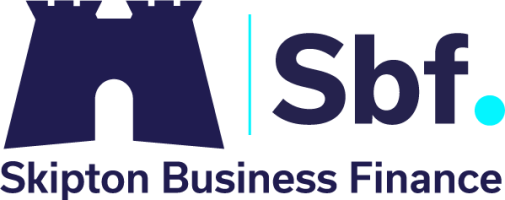Many things changed for SMEs when the 2008 financial crisis hit. Some things were obviously catastrophic - job losses, business closures, the sharp decline in new start-ups.
But other outcomes were more subtle, like the increased struggle for small businesses to find new sources of working capital.
The problem doesn’t sound as urgent but it is a big issue - working capital helps a business to keep operating and can signal whether it is running smoothly or about to hit a bump.
Traditionally, businesses looked to loans or business overdrafts as working capital solutions. But - as you’ve probably guessed - they struggled when the banks started to take fewer risks.
And this hit SMEs hard - overdraft rejections increased more than threefold, according to the Economic and Social Research Council.
So, maybe it lingers as a pain point for many businesses. Loans and overdrafts had offered businesses a lifeline for centuries.
But things have changed.
We’re now more aware of the restrictions with traditional business finance.
Why SMEs choose Invoice Finance
An invoice finance facility is much more flexible. That’s basically the main reason.
Or to elaborate…
“Since the credit crunch accessing funding through traditional paths such as business loans has remained challenging for smaller businesses, and so the flexibility of finance options, competitive prices and the quick turnaround of decisions associated with invoice finance is a real draw for these businesses.”
…as the Asset Based Finance Association explains.
Let’s compare Invoice Finance to Traditional Banking
Decisions are based on future sales
Unlike overdrafts which are dictated by historical financial performance, an Invoice Finance solution – such as Factoring or Discounting - is based on the sales you create.
Accessibility to funds
Limits are often fixed for overdrafts so you have to go through the whole application process again for more funds. But Invoice Finance can advance cash within 24 hours of your invoice being issued.
Capital that adapts to your business
Rather than needing to return for more working capital, an invoice finance facility grows with your business and typically provides more cash too.
Repayments arranged over a period
An overdraft provider could demand immediate repayments at any moment. An Invoice Finance provider sets up agreements for a set period cutting out the pressure for immediate repayment.
Your personal assets are safe
Rather than giving a charge over your family home, invoice finance is focused on your invoices - your sales ledger is your asset meaning you’re not risking anything personal.
Reliability and flexibility
Although Invoice Finance can cost more than a traditional overdraft, most business owners value the greater flexibility and peace of mind. (Some even use it to obtain supplier discounts by paying them earlier with the increased cashflow, thus covering the cost of the solution. But don’t tell anyone we told you.)
There is a little more to understand but at Skipton Business Finance we always walk you through the process from the start.
Looking for a new way to boost your working capital?
Backed by Skipton Building Society, one of the largest financial establishments in the UK, Skipton Business Finance has funds ready to lend to businesses up and down the country.
If you would like a no-obligation FREE quote, please get in touch by ringing us on 0800 0854150 (call 0330 1232437 if ringing from a mobile).
You can also email us at info@skiptonbf.co.uk.
Or why not utilise the handy form on the right and we'll call you back!










